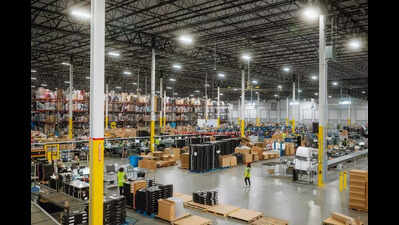Tamil Nadu bets big on warehousing policy | Chennai News – Times of India

Two weeks ago, Tamil Nadu govt officials announced that the state was going to soon release a policy on warehousing with a focus on the delta districts. Given that the state integrated logistics policy and action plan (ILPAP) was prepared in 2023, why a warehousing policy? A dedicated warehousing policy, expected to be launched by Oct 2025, could serve as a benchmark for integrating storage solutions in the entire logistics value chain, says state industry secretary V Arun Roy.The ILPAP is focused on “overall logistics movements in the state”, he adds. A few national and international developments have made a warehousing policy imperative. First, the Union govt announced development standards for warehouses, which provides guidance on specific cargo type and services. “The (TN) policy would focus on warehousing as a sub-sector of the entire logistics ecosystem,” says Roy.Second, the new US tariffs have opened up investment and expansion opportunities for TN and an efficient warehousing roadmap is critical to making the most of them. Tamil Nadu Industrial Development Corporation (Tidco) MD Sandeep Nanduri says, the state govt plans a “robust institutional mechanism” to support growth of the warehousing sector. At the heart of this plan is a more commodity-based approach instead of a one-size-fits-all policy.“This will ensure a broader coverage, from perishables to automobile, from cement to electronics, considering the diverse commodity profile of the state,” he adds.Currently the state govt is consulting multiple stakeholders. “The policy aims to establish warehousing clusters in tier-2 and tier-3 cities that could seamlessly integrate with TN’s industrial development plan,” says Roy. Tamil Nadu is looking to develop several “logistics parks or MMLPs (multi-modal logistics parks), dry ports and other road and rail-based freight terminals, working with central logistics agencies and private players through PPP”, he adds.Two major investments on this front are MMLP Mappedu (Chennai) and MMLP Coimbatore. “Mappedu is expected to be completed by 2027 following which the second phase would be constructed,” says Roy. “We are in advanced stages of land acquisition near Coimbatore.”The state’s warehousing capacity is between 10-15 million sqft with large third-party logistics clusters in Chennai and Coimbatore. Chennai alone contributes more than 5 million sqft of warehousing volume, and Coimbatore contributes another 2 million sqft. The fragmented warehousing market in tier-2 and tier-3 cities is yet unaccounted for. With the new policy, govt would streamline the registration process, which would allow it to monitor the available space and gaps.“The focus of the warehousing policy is to capture the untapped potential of cities such as Hosur, Trichy, Madurai, Tuticorin etc,” says Arun Roy.The policy focuses on the delta region because it is the hub for perishables, agro and fishing industries. “The region has a huge potential for development of cold storage facilities for domestic as well as export-oriented supply chain,” says Arun Roy. Logistics experts say that apart from attracting new investments, the policy will also cater to existing investors. “Given TN’s strong agricultural and horticultural base, developing infrastructure with temperature control and storage segregation that are integrated with downstream industries will greatly reduce wastage and improve value realisation for our farmers,” says R Dinesh, chairman, TVS Supply Chain Solutions.Also, he adds, warehouses near manufacturing clusters should “align with production clusters and their supply chain needs”.What will help is the development of a key transshipment hub in neighbouring Kerala. “India’s first deepwater transshipment port at Vizhinjam is being built by Adani. Once fully operational, containers that are headed to Colombo for transshipment can be routed to Vizhinjam. This opens up a big warehousing opportunity for both north and south TN particularly Tuticorin, Tirunelveli and Kanyakumari,” says Rejyson Samuel, director & CEO, Sandook Logistics.















